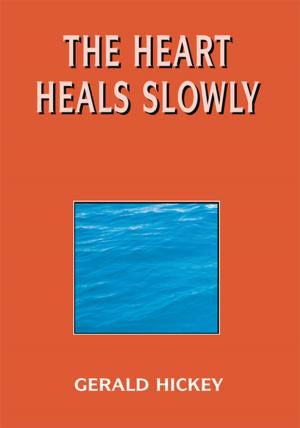| Author: | Carol Thomas | ISBN: | 9781469158518 |
| Publisher: | Xlibris US | Publication: | January 30, 2012 |
| Imprint: | Xlibris US | Language: | English |
| Author: | Carol Thomas |
| ISBN: | 9781469158518 |
| Publisher: | Xlibris US |
| Publication: | January 30, 2012 |
| Imprint: | Xlibris US |
| Language: | English |
About The Book Finding Home: Earth, Sky, Ocean Spirit This book of poems, new and selected, has been years in the making. Nearing a seventieth decade, one is reminded of Leonard Cohens admonition to make a record of ones life. Adrienne Rich suggests that one finds the deepest truths of a womans life in her poetry, poetry that draws from and illuminates her autobiography. Its language is precocious and uncanny in its efforts to explicate the nature of her lived experience. I have taught creative writing in a number of contexts: with troubled adolescents, in colleges and universities, in a womens prison, and with patients and clients in my own private practice in New London, Connecticut. It was always the journaling that revealed and explicated the individuals trauma and allowed them to move to what might be called a quotidian delight, which they had not been able to find beforethat life might hold a quotidian ecstasy was a new and wondrous idea to them, and one they could find access to. The earth, sky, ocean, spirit, and their own embodied and ensouled selves were the means to their own connectedness to the universe. Human language began with womans singing, her music, her natural response to giving life, and perceiving the plenitude around her. A mother murmuring vowels and consonants, soft language of warmth, comfort, and tenderness. There is reason to believe that at one time on the island of Crete, long ago, there was a woman-centered culture in which the values of nurturing, living in harmony with the natural world, using a language that emerged from this matrix. Warriors came, the earlier culture was destroyed, and the language reflected the new and violent warring culture. The new patriarchal lexicon focused on the lived experience of the men. It concerned power, victory, defeat, and death. It was literal, denotative as opposed to connotative; it was didactic, hierarchical, and dismissive of the language and life of the womans perspective. It would seem that in contemporary American culture, the exclusion of what we might call poetic languagethat is, language that expresses the truth and affects of the human beinghas become obsolete, replaced by patriarchal language ubiquitous in the political violence of the day and the seeming waning of what we thought was an American way of life. These poems attempt to illuminate a womans experience of her world. They further attempt to suggest the need for Whitmans notion of the need for an increasingly capacious imagination. Perhaps men are not from Mars and women from Venus. Adrienne Rich suggests, there is hope for a common language more in harmony with the truth, reality, and ambiguity of the natural world. And perhaps after all, even with the angst and anxiety of living in this world, we are all poets, soul-searching people, all of whom experience quotidian ecstasymoments of the pure joy of living, mystery, and incomprehensibleness, bringing delight and clarity, affirming and confirming the wondrous miracle of our lives.
About The Book Finding Home: Earth, Sky, Ocean Spirit This book of poems, new and selected, has been years in the making. Nearing a seventieth decade, one is reminded of Leonard Cohens admonition to make a record of ones life. Adrienne Rich suggests that one finds the deepest truths of a womans life in her poetry, poetry that draws from and illuminates her autobiography. Its language is precocious and uncanny in its efforts to explicate the nature of her lived experience. I have taught creative writing in a number of contexts: with troubled adolescents, in colleges and universities, in a womens prison, and with patients and clients in my own private practice in New London, Connecticut. It was always the journaling that revealed and explicated the individuals trauma and allowed them to move to what might be called a quotidian delight, which they had not been able to find beforethat life might hold a quotidian ecstasy was a new and wondrous idea to them, and one they could find access to. The earth, sky, ocean, spirit, and their own embodied and ensouled selves were the means to their own connectedness to the universe. Human language began with womans singing, her music, her natural response to giving life, and perceiving the plenitude around her. A mother murmuring vowels and consonants, soft language of warmth, comfort, and tenderness. There is reason to believe that at one time on the island of Crete, long ago, there was a woman-centered culture in which the values of nurturing, living in harmony with the natural world, using a language that emerged from this matrix. Warriors came, the earlier culture was destroyed, and the language reflected the new and violent warring culture. The new patriarchal lexicon focused on the lived experience of the men. It concerned power, victory, defeat, and death. It was literal, denotative as opposed to connotative; it was didactic, hierarchical, and dismissive of the language and life of the womans perspective. It would seem that in contemporary American culture, the exclusion of what we might call poetic languagethat is, language that expresses the truth and affects of the human beinghas become obsolete, replaced by patriarchal language ubiquitous in the political violence of the day and the seeming waning of what we thought was an American way of life. These poems attempt to illuminate a womans experience of her world. They further attempt to suggest the need for Whitmans notion of the need for an increasingly capacious imagination. Perhaps men are not from Mars and women from Venus. Adrienne Rich suggests, there is hope for a common language more in harmony with the truth, reality, and ambiguity of the natural world. And perhaps after all, even with the angst and anxiety of living in this world, we are all poets, soul-searching people, all of whom experience quotidian ecstasymoments of the pure joy of living, mystery, and incomprehensibleness, bringing delight and clarity, affirming and confirming the wondrous miracle of our lives.















